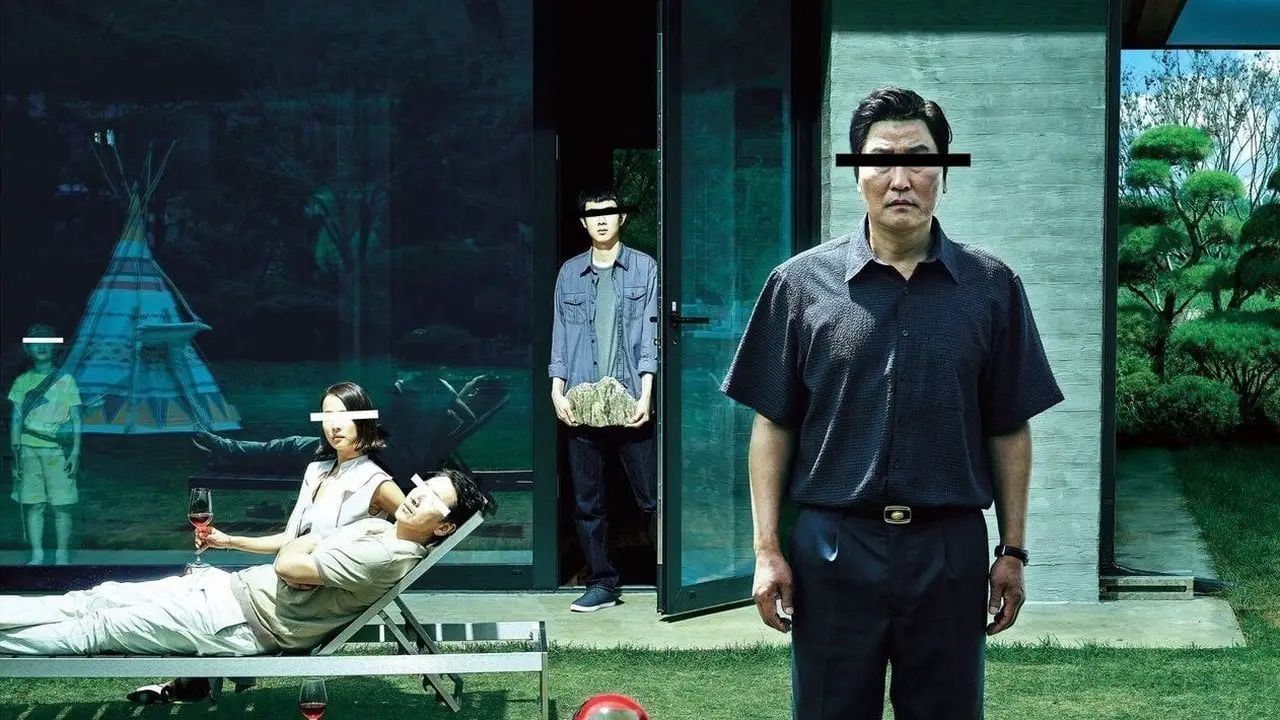Table of Contents
Introduction
Bong Joon-ho’s Parasite (2019) is a genre-defying masterpiece that has captivated audiences worldwide. Winning four Oscars, including Best Picture, the film blends dark comedy, thriller, and tragedy into a razor-sharp critique of social inequality. Its tightly woven narrative follows the Kim family, a group of impoverished schemers who infiltrate the lives of the wealthy Park family. Yet, beneath this gripping plot lies a web of themes that explore class, morality, and survival in a stratified society.
While Parasite entertains with its clever twists and compelling characters, its deeper resonance comes from the way it holds up a mirror to modern society. By unpacking its symbolism, characters, and social commentary, we can better understand why the film has become a cultural touchstone in discussions about inequality.
Haven’t seen Parasite yet? Watch Parasite here, or buy it here!
Parasite’s Core Themes
1. Class Inequality: The Vertical Divide
Parasite vividly portrays the divide between the haves and have-nots. The physical environments of the Kim and Park families encapsulate their social statuses. The Kims live in a cramped, semi-basement apartment where they fight off insects and endure flooding, while the Parks reside in a luxurious, sunlit mansion atop a hill. This stark contrast in living spaces reflects the systemic barriers that trap families like the Kims in cycles of poverty.

The Significance of Space
- The Park House: Designed by a famous architect, the Park home is a symbol of aspiration and exclusivity. Its spaciousness and manicured garden create a physical and psychological barrier that keeps the outside world—and the struggles of the poor—at bay.
- The Kim Basement: The Kims’ semi-basement apartment reflects their liminal existence: not entirely submerged in poverty but never truly above it. Their home’s small, ground-level window offers a glimpse of the outside world but mostly frames unsavory sights like drunks urinating in the alleyway.
- The Secret Bunker: Beneath the Park home lies a hidden space where another impoverished family secretly lives. This bunker symbolizes the depths to which the underprivileged must sink to survive. Its discovery is a chilling reminder that even the Kims, who feel close to escaping poverty, are only a step away from the abyss.
Vertical Symbolism in Action
The film reinforces this divide through frequent visual cues. The Kims are constantly shown climbing stairs to reach the Parks or descending into lower spaces, such as their flooded home or the bunker. These physical movements underscore the power imbalance, with wealth and privilege existing perpetually above the struggling underclass.
2. Morality and Parasitism: Who is the Real Parasite?
The term “parasite” is deliberately ambiguous. The Kims are undoubtedly parasites, infiltrating the Park household under false pretenses and exploiting their wealth. But the Parks also parasitize the labor and services of the underprivileged to maintain their comfortable lives. Bong Joon-ho asks a provocative question: who is exploiting whom?
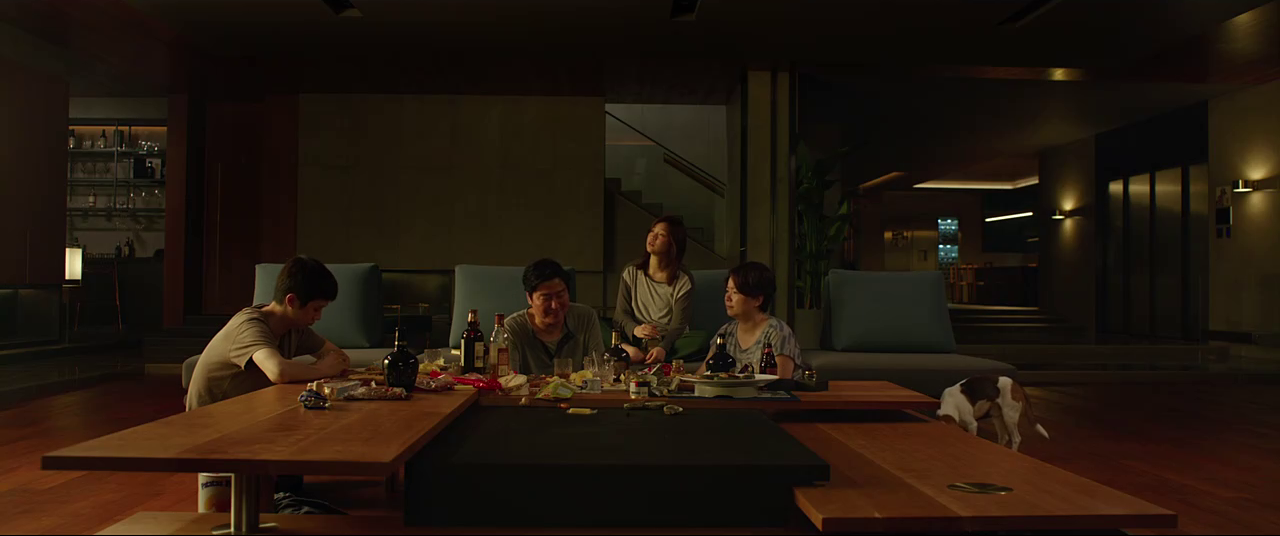
The Kims: Manipulators or Survivors?
- The Kim family’s actions, though deceitful, stem from desperation. As they orchestrate their infiltration, replacing the Parks’ staff one by one, their ingenuity is as admirable as it is unsettling. Yet their actions highlight a darker reality: in a society with few opportunities for upward mobility, survival often necessitates bending or breaking the rules.
- The moral ambiguity of the Kims’ actions forces viewers to empathize with their plight while questioning the ethics of their choices.
The Parks: Generous Yet Oblivious
- On the surface, the Parks appear polite and generous. They pay their staff well and avoid overt cruelty. However, their ignorance of the Kims’ humanity reveals a deeper issue. For the Parks, their employees are invisible cogs in the machinery of their lives, valued only for their utility.
- Mr. Park’s disdainful comments about the “smell” of the Kims’ poverty encapsulate this attitude. It’s a reminder that class prejudice isn’t always overt—it can manifest as small, dehumanizing gestures.
By presenting both families as flawed, Parasite rejects simplistic moral binaries. Instead, it portrays the class divide as a systemic issue, with both sides trapped in a cycle of exploitation.
Key Moments of Social Commentary
1. The Flood Scene: A Turning Point
One of the most devastating moments in the film is the flood that destroys the Kim family’s home. As torrential rain forces them to evacuate, they wade through waist-deep sewage, salvaging what little they can. Meanwhile, the Parks remain blissfully unaffected, viewing the rain as an inconvenience that disrupts their garden party plans.
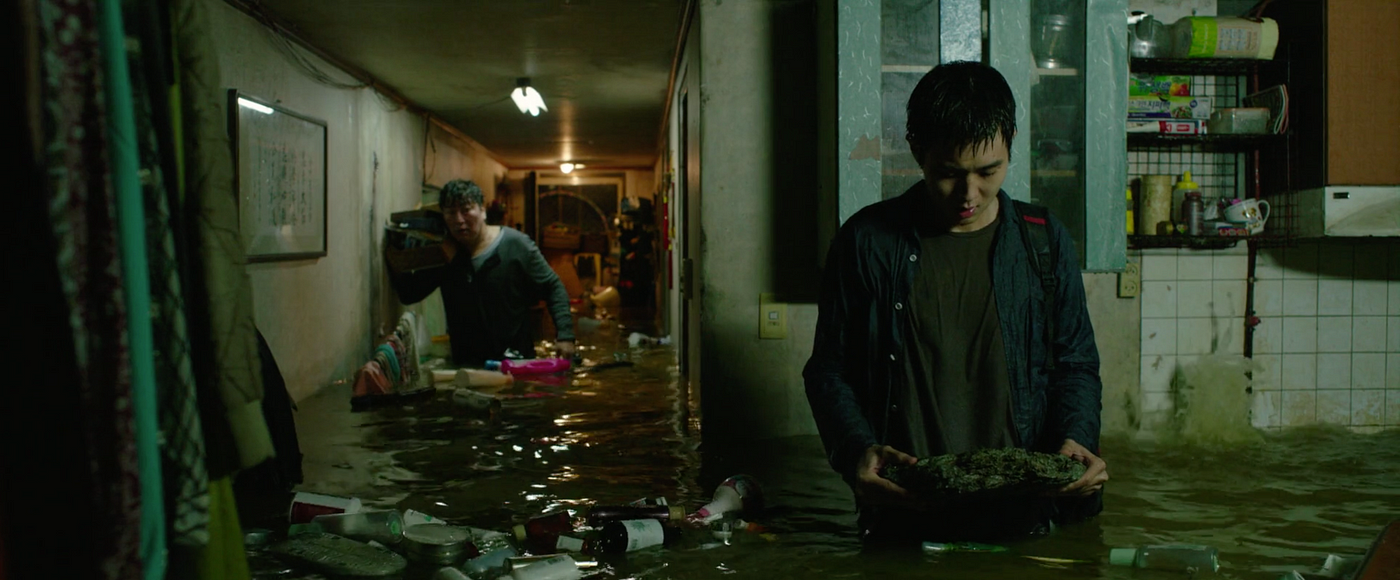
This scene highlights how the wealthy are insulated from the struggles of the poor. For the Parks, the rain is an aesthetic disruption; for the Kims, it’s a catastrophic event. The juxtaposition underscores the fragility of the Kims’ lives and the indifference of the wealthy to their suffering.
2. The Scholar’s Rock: A Symbol of False Hope
The scholar’s rock, a gift from a family friend, symbolizes the Kim family’s aspirations for wealth and stability. Initially seen as a token of good fortune, the rock becomes a recurring motif that grows darker over time. By the film’s climax, the rock is used as a weapon, signifying how the pursuit of wealth can turn destructive.
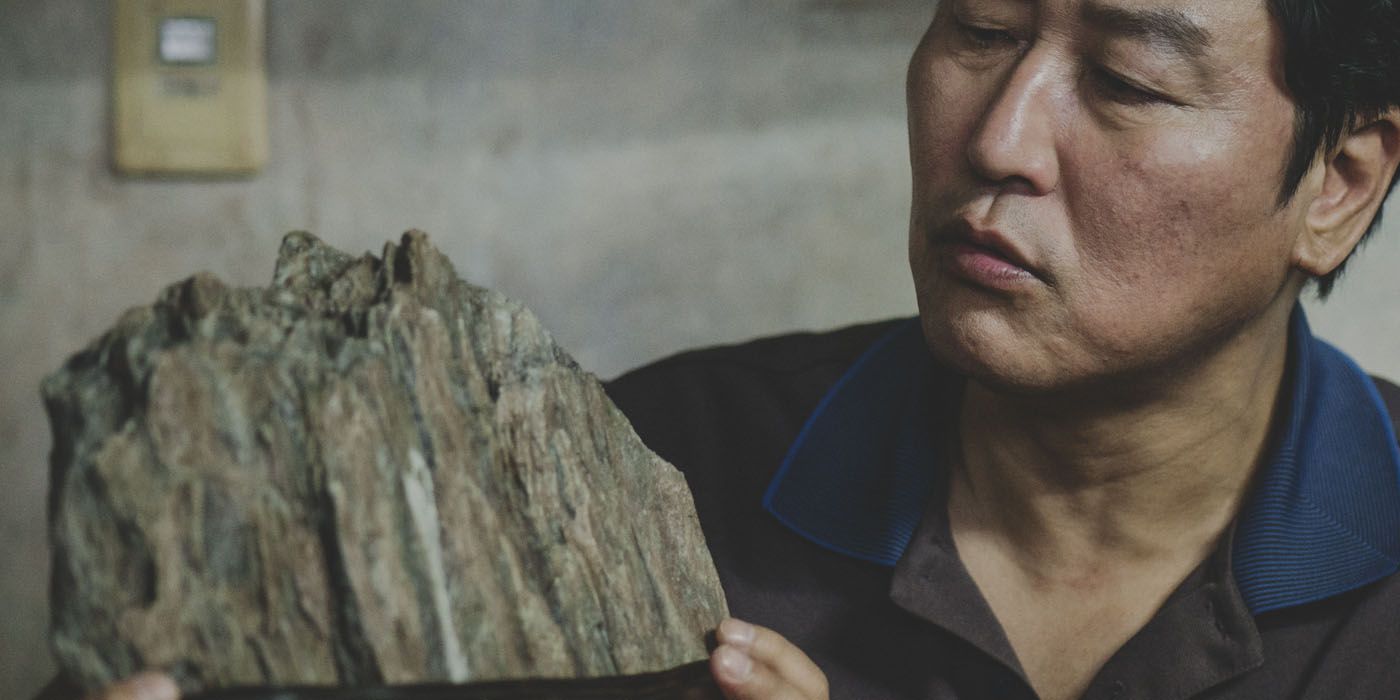
Parasite’s Narrative Structure and Genre-Bending Brilliance
Parasite masterfully blends genres, starting as a dark comedy before morphing into a tense thriller and ending with a gut-wrenching tragedy. This fluidity keeps viewers on edge, reflecting the unpredictability of life for those on society’s margins.
Twists and Revelations
The turning point comes with the discovery of the secret bunker beneath the Park home. The reveal introduces a second family, the housekeeper Moon-gwang and her husband, who have been hiding from debt collectors for years. This shocking twist deepens the film’s commentary on class stratification, as the Kims realize they are not alone in their struggle to survive.
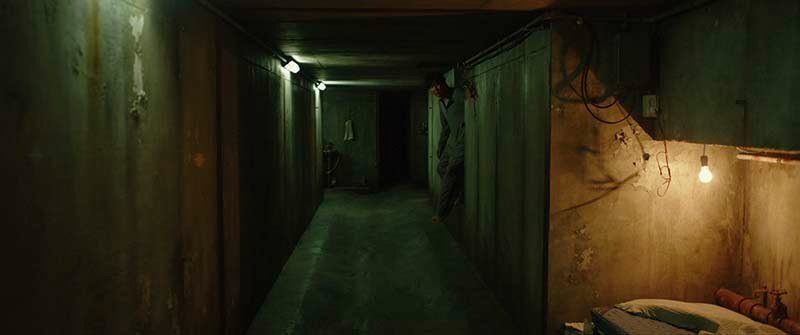
A Tragic Finale
The film’s explosive climax—culminating in a murder at the Parks’ garden party—forces viewers to confront the inevitable consequences of unchecked inequality. The chaos of the final act lays bare the underlying tensions between the classes, with tragic results for both families.
Symbolism and Hidden Meanings
1. The Smell of Poverty
One of the film’s most striking motifs is the “smell” of the Kim family, which Mr. Park finds unpleasant and distinctive. This olfactory symbol represents the intangible stigma of poverty—something that no amount of effort or disguise can fully conceal. It highlights how class divides persist in ways that are subtle yet deeply ingrained.
2. The Window as a Metaphor
Windows play a recurring role in Parasite, framing the characters’ perspectives on the world. For the Kims, their small, ground-level window offers a distorted view of life outside, reflecting their limited opportunities. In contrast, the Parks’ expansive glass walls symbolize their privilege and detachment from the struggles below.
Final Thoughts: Parasite Explained
Parasite is more than a film—it’s a profound statement on the systemic inequalities that shape our world. By portraying the struggles of the Kim family with empathy and nuance, Bong Joon-ho forces viewers to confront uncomfortable truths about privilege, morality, and survival. The film’s brilliance lies in its ability to entertain while delivering a scathing critique of the social structures that perpetuate division.
Why It Resonates Today
In a world marked by rising inequality and economic precarity, Parasite feels more relevant than ever. It’s a call to action, urging us to rethink the systems that sustain wealth disparity and the human cost of unchecked privilege.
Excited about Parasite? Watch it here, or buy it here!
Recommended Books to Explore Themes in Parasite
- “Capital in the Twenty-First Century” by Thomas Piketty
A groundbreaking analysis of wealth inequality and its societal consequences, echoing Parasite’s critique of systemic injustice.
Buy it here. - “The Great Gatsby” by F. Scott Fitzgerald
A classic exploration of the empty promises of wealth and the cost of chasing the American Dream, resonating with Parasite’s themes of aspiration and disillusionment.
Buy it here. - “Evicted: Poverty and Profit in the American City” by Matthew Desmond
A harrowing look at the realities of housing insecurity and economic hardship, much like the Kims’ precarious existence.
Buy it here. - “Down and Out in Paris and London” by George Orwell
Orwell’s firsthand account of poverty and class divides parallels the stark realities depicted in Parasite.
Buy it here. - “The Communist Manifesto” by Karl Marx and Friedrich Engels
A foundational text on class struggle that connects to the systemic critiques central to Parasite.
Buy it here.
For more in-depth movie reviews, take a look at our other reviews here.

